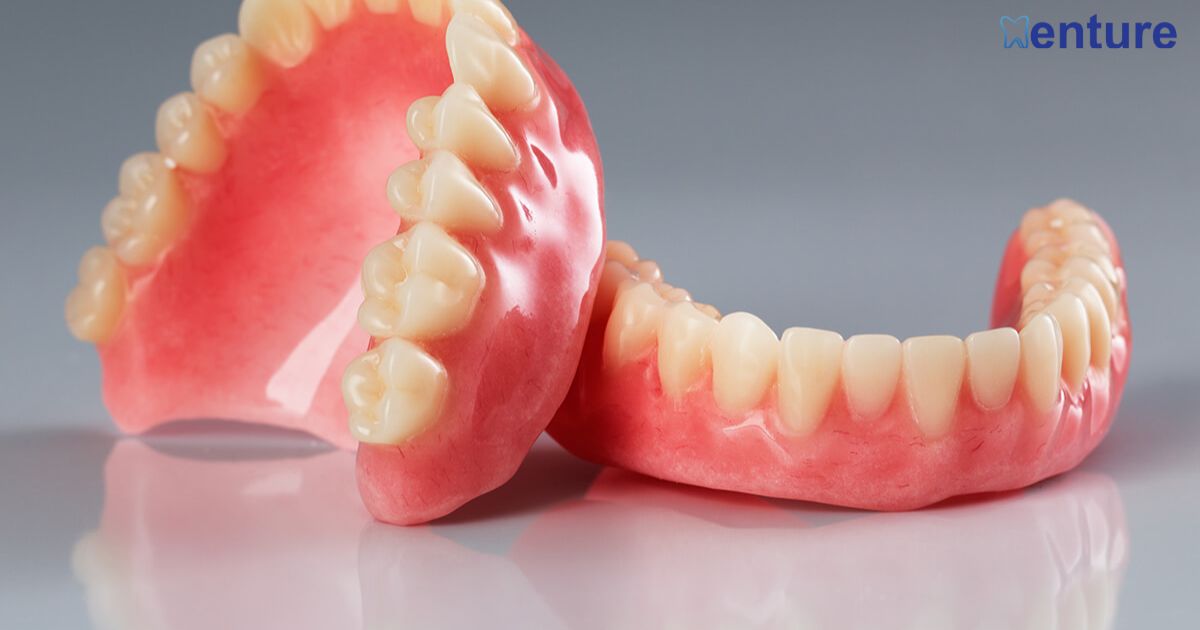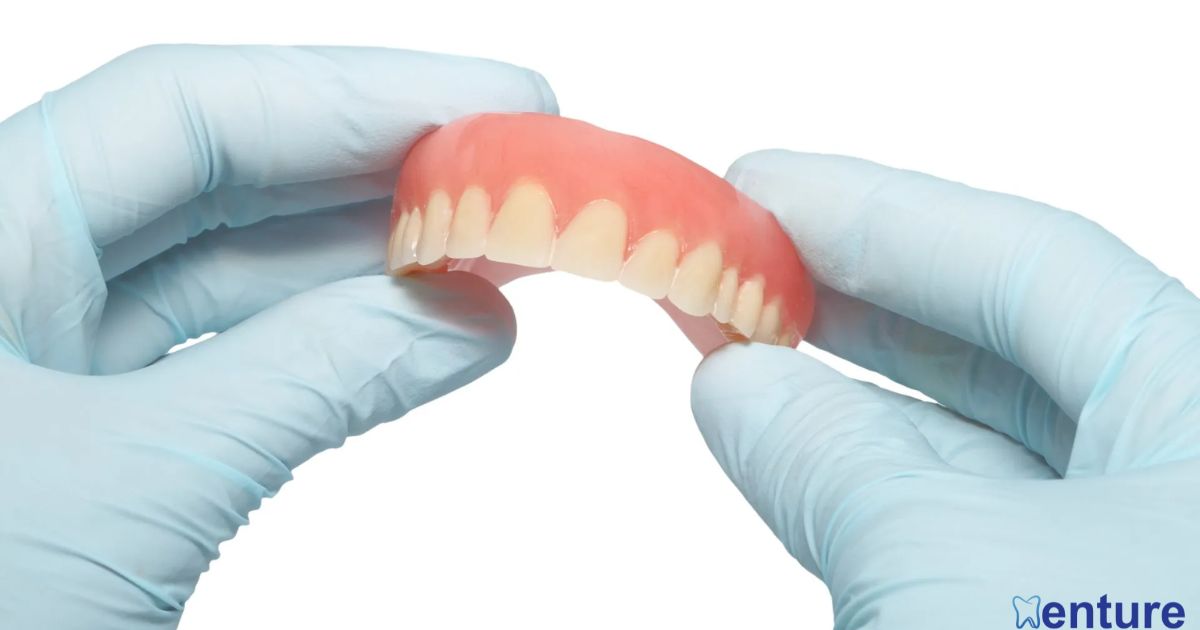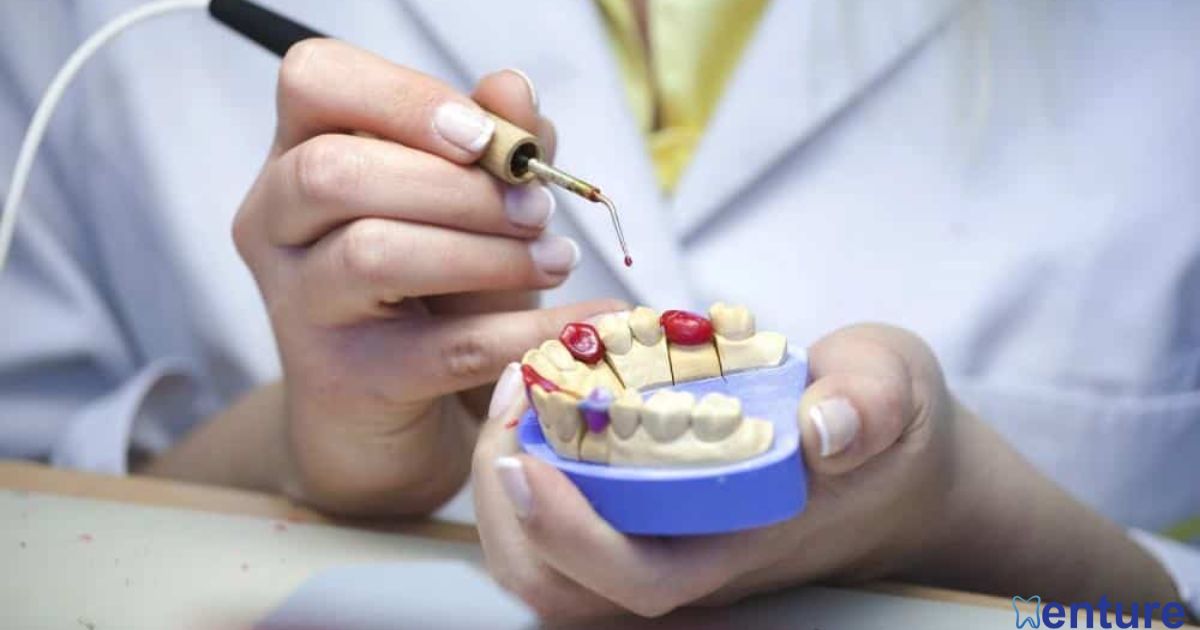Are you considering dentures and wondering how long the process takes? Look no further. In this article, we will provide you with a comprehensive guide on the timeline for getting dentures. From the initial consultation to the final adjustments, we will walk you through each step of the process.
Our goal is to ensure that you feel informed and empowered throughout your denture journey. We understand that belonging to a community is important, and we want to help you regain confidence in your smile.
By following our expert guidance and maintaining proper care and maintenance, you will be able to enjoy your dentures for years to come. So let’s dive in and discover how long it takes for dentures.
Key Takeaways
- The process of getting dentures involves an initial consultation and evaluation, dental impressions and design, trial fitting and final adjustments, and denture placement and post-placement follow-up.
- The denture fabrication process takes several weeks to ensure a precise fit and functionality, beginning with the creation of a mouth impression and working with a dental laboratory for fabrication.
- Trial fitting and final adjustments allow for evaluating the fit, comfort, and functionality of the dentures, with adjustments made as necessary to achieve optimal fit and satisfaction.
- Proper denture care, maintenance, and regular check-ups are crucial for longevity and proper functioning of the dentures, including removing and rinsing them after eating, brushing daily, soaking overnight, and seeking professional care when needed.
Initial Consultation
During the initial consultation, the dentist will assess the patient’s oral health and discuss the denture options available. This comprehensive evaluation allows the dentist to understand the patient’s specific needs and goals.
It includes examining the condition of the gums, teeth, and jawbone, as well as taking impressions and measurements for accurate denture fabrication. The dentist will also address any concerns or questions the patient may have, ensuring a personalized treatment plan for a comfortable and natural-looking denture solution.
Dental Impressions
To obtain accurate measurements for denture fabrication, dental impressions are taken using specialized materials and techniques. Dental impressions are crucial in creating custom-fitted dentures that provide optimal comfort and functionality.
During the impression process, the dentist carefully captures the shape and size of the patient’s gums, teeth, and surrounding oral structures. This ensures that the dentures will fit securely and allow for proper chewing and speaking. The materials used for dental impressions are safe and non-toxic, ensuring the patient’s safety throughout the procedure.
Denture Design and Fabrication
The process of denture design and fabrication typically takes several weeks to ensure precise fit and functionality. It begins with the creation of an impression of the patient’s mouth, which serves as the basis for the design.
The dentist then works closely with a dental laboratory to fabricate the dentures using high-quality materials. This involves a meticulous process of shaping, color matching, and testing for comfort and functionality. The final result is a set of dentures that not only fit snugly but also provide optimal function and aesthetics.
Trial Fitting
Following the denture design and fabrication process, a single trial fitting appointment is typically scheduled to evaluate the fit, comfort, and functionality of the dentures. During this appointment, the dentist or prosthodontist assesses the dentures to ensure they align properly with the gums and surrounding teeth.
The patient is also given the opportunity to provide feedback on the overall comfort and functionality of the dentures. Through this trial fitting, any necessary adjustments can be made to achieve an optimal fit and ensure the patient’s satisfaction.
| Points to Consider | Benefits of Trial Fitting |
|---|---|
| Evaluation of fit, comfort, and functionality | Ensures proper alignment and stability |
| Opportunity for patient feedback | Enhances overall comfort and functionality |
| Adjustments can be made | Achieves optimal fit and patient satisfaction |
Final Adjustments
After the trial fitting appointment, dentures may require final adjustments to ensure a perfect fit and optimal functionality. During this stage, the dentist will carefully assess the dentures and make any necessary modifications.
These adjustments may involve refining the shape and size of the dentures, adjusting the bite alignment, or addressing any discomfort or sore spots. It is crucial to achieve a proper fit to prevent issues such as slipping, irritation, or difficulty with speech and eating. The dentist will work closely with the patient to ensure their satisfaction and comfort with the final outcome.
Denture Placement
Denture placement involves the precise positioning and attachment of the prosthetic teeth to the patient’s gums. During this process, the dentist carefully ensures that the dentures fit securely and comfortably in the mouth. To achieve successful denture placement, several steps are involved:
- The dentist will assess the patient’s oral health and take impressions of the gums to create custom dentures.
- The dentures are then adjusted and tested for fit and comfort.
- Finally, the dentist will securely attach the dentures to the patient’s gums using adhesives or dental implants.
This meticulous process ensures that the dentures provide a natural appearance and functional bite for the patient.
Post-Placement Follow-up
Regularly, denture wearers should schedule post-placement follow-up appointments with their dentist to ensure proper fit and address any concerns or adjustments needed. These appointments are essential in maintaining the health and functionality of the dentures.
During these follow-up visits, the dentist will assess the fit and comfort of the dentures, make any necessary adjustments, and provide guidance on proper denture care. The table below provides an overview of the recommended frequency of post-placement follow-up appointments based on the individual’s specific needs and circumstances.
| Frequency | Timeframe |
|---|---|
| Initial | 1-2 weeks |
| Short-term | 1-3 months |
| Long-term | 6-12 months |
Denture Care and Maintenance
To ensure the longevity and proper functioning of dentures, it is crucial for wearers to maintain a consistent and effective care routine. Here are some essential steps to keep your dentures in excellent condition:
- Remove and rinse dentures after eating.
- Brush dentures daily with a soft-bristle toothbrush and denture cleaner.
- Soak dentures overnight in a denture cleaning solution.
Potential Replacement or Relining
The lifespan of dentures can vary depending on individual wear and tear, necessitating potential replacement or relining over time. Replacement may be necessary if the dentures become worn, damaged, or no longer fit properly.
Relining, on the other hand, involves adding a new layer of material to the denture base to improve its fit. Regular dental check-ups and proper care can help prolong the lifespan of dentures and minimize the need for replacement or relining.
FAQs
How fast can you get dentures?
Getting dentures typically takes a few weeks. The process involves multiple dental appointments for measurements, fittings, and adjustments, so it’s not an immediate solution.
How long does it take to get dentures from start to finish?
Can you eat with dentures?
Conclusion
In conclusion, the lifespan of dentures can be extended with proper care and regular dental check-ups. Taking care of your dentures is crucial for maintaining their functionality and appearance. Remember to clean them daily using a denture cleaner and brush, and store them properly when not in use. Additionally, scheduling regular check-ups with your dentist will ensure that any issues or adjustments can be addressed promptly, prolonging the lifespan of your dentures.













